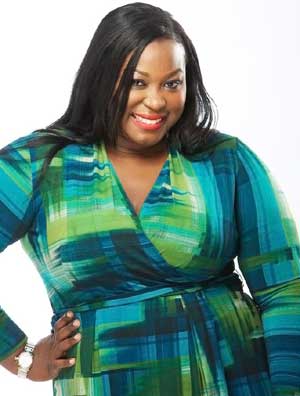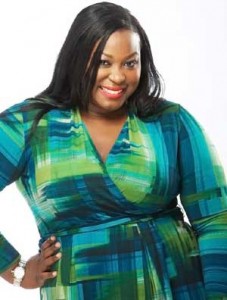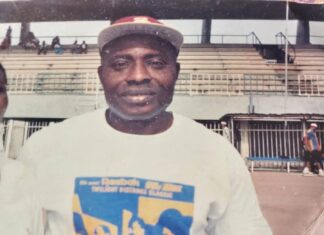Bikiya Graham-Douglas is founder of Beeta Universal Arts Foundation and an award-winning actress who not only obtained a business law degree from the University of Portsmouth but also trained in acting at the Oxford School of Drama and The Bridge Theatre Training Company. The winner of best supporting actress in drama at the Africa Magic Viewer’s Choice Awards (AMVCA 2014) told Assistant Life Editor, TERH AGBEDEH, in this interview her plans for theatre in Nigeria and beyond.
Was it difficult getting artistes in Port Harcourt to take part in Obele and the Storyteller, the play your company staged for the Port Harcourt World Book Capital event, considering that a lot of the performers are based in Lagos?
To be honest, we had auditions in Lagos, in Port Harcourt, and we went with the best cast, the best who fit the roles, who we knew would be professional and dependable actors. This is because Obele and the Storyteller is a newly-created piece by myself and Oladipo Agbolowaje, and I was not going to take any risk with actors; I wanted the best people to do the job. So when we did the auditions in Port Harcourt and Lagos, the people who we thought suited the roles were the people we picked to be a part of it.
When the play was first staged at the Rivers State Government House, it didn’t quite come out as well as this performance at the Presidential Hotel. Did you feel bad about that?
No, I did not, because when you have a theatre performance in a hall that is not made for theatre, it can be quite frustrating because the acoustics work against you. But in Government House, after a while, people got into it. That was very rewarding and at the end of the day, people were very satisfied. They congratulated us and some went as far as saying we did not know this about our history. But when you have technical challenges, it is theatre and the show must go on. So I didn’t feel bad at all because it was in the beginning, but people wormed into it and I was very happy.
There seems to be part two of Obele and the Storyteller in the offing; is that going to happen?
It will be a continuation from when Obele discovers the book and the journey of what the book has gone through in our recent history. Some of those writers who were mentioned such as Chimamanda Adichie and Ben Okri. They are people who will be reflected; we will tell their own stories in the part two of it. Because this tied with what Rainbow Foundation wanted. In part two, we are going to focus on how, since we discovered the book in Nigeria, it has changed our ideas and the way we think, and how the book has evolved, and what it can do for our generation.
You sound as if that part has already been written?
You just have to wait to find out.
Informed from the Obele and the Storyteller production, would it be correct to say that Beeta Universal Arts Foundation is out to revive theatre in Port Harcourt?
When I was brought on to do this project, I was really excited to tell the story about our history. But I am an indigene of Rivers State and my passion for theatre started here, from me going to the Old Cultural Centre where I watched these artistes which birthed my passion for theatre. It died really in Port Harcourt and when I came here for the audition, I wasn’t very happy with the quality I got. I cannot blame the people that I saw, I can only blame the society because it does not really accommodate theatre as it used to, unlike Lagos where you have many venues where people can watch theatre performances and many avenues for people build their capacity. Apart from the University of Port Harcourt, I do not know anywhere else where people can access theatre or build their capacity here.
Port Harcourt is a place that is very important to me. Like I said, I am an indigene and it is something that I wanted to do. But this play was just a reminder to me as to how quickly we need to work, how desperate the situation is for people like me to be back at home creating opportunities for people to perform in theatre and building the capacity to sustain the industry.
How long has Beeta Universal Arts Foundation been in existence and what peculiar challenges have you had?
We have existed for five years, and our major challenge has been the lack of support for theatre. But in the last five years, if I say that we have not experienced a difference, I will be lying to you. Now I do my shows and they are sold out. So there has obviously been a progression and we have more organisations willing to throw their weight on theatre as can be seen recently with Kakadu: The Musical; Saro: The Musical; and For Coloured Girls. The last production I did in Lagos, Closer, at the InterContinental Hotel was supported by United Bank for UBA. So we are very optimistic. The major challenge has been funding, but we believe that that will soon be in the past.
Do you think that ticket for plays in the country are over-priced?
To be honest, I do not think they are over-priced. I say that because it is very expensive to put on a theatrical production, especially as we lack venues. You cannot run your show for a long period of time, to give you enough time to recoup your investment. So, when you have two shows and you have spent a lot of money on them, you want to just break even. A lot of us who are in theatre today in Nigeria are not in it because of money, but because we have a passion for it and believe that our passion will one day translate to money. A lot of people always say you have to look at the business side. Yes, you must always look at the business side for sustainability. But in the arts, if you do not get the creative side right, you can never get the business side right.
Do you see yourself taking your productions to other parts of the country in the nearest future?
I see myself taking my productions to other parts of the world in the nearest future, not just around the country.
You are in the movie, Flower Girl. Is that the way you are going?
I am a professionally-trained actress; I went to the Oxford School of Drama.
Are you going to do your own films including produce, direct, script?
Never say never; that is what I will say.
Should you do more plays in Port Harcourt, will you be importing your cast and crew from Lagos?
No, the thing is that this cast and crew we have, not everyone is from Lagos. It is actually half and half. We got a lot of people from Port Harcourt; most of our crew came from here. Only in very strategic roles that we have tested actors. For me as a producer, if you have people that you are comfortable working with and it is not broken, why fix it? So for the future productions in Port Harcourt, no; we will not be bringing people from out of town. We will be looking to build the capacity of local artistes here. And if they do need to have master classes, we are into art education too; we will be doing master classes to equip people with skills for their own advancement in theatre.














